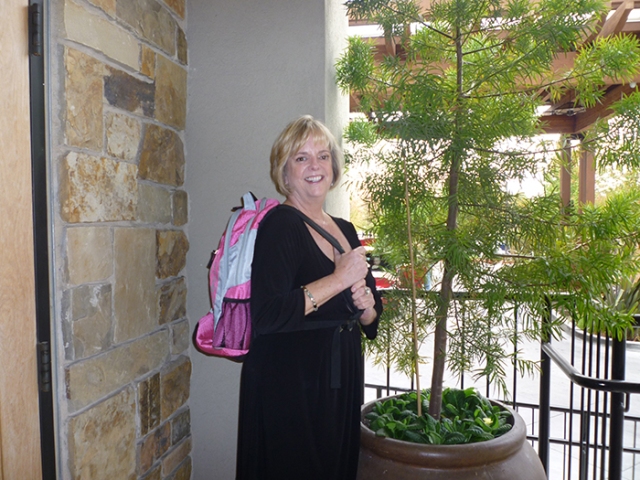By Kimberly Horg
For Napa resident Cherie Knox, parenting had its ups and downs. Worrying about her child wasn’t uncommon as a lot parents have the same feelings when their child is struggling with the troubles of becoming an adult.
Knox, however, knew her son, Josh Thornley, was coming out of a tough time. It was 19 years ago when he turned his life around. She remembers making plans to decorate a Christmas tree and he never showed up for the holiday tradition.
“This was to be a special year, a special Christmas, a celebration of Josh moving through some scary and difficult times and coming through it all to the other side,” she said.
This mother says there is no way to put it other than she “freaked out”, wondering why he didn’t call. She couldn’t take the sight of the bare tree. She picked it up, stomped outside and down the porch steps and over the bridge went the tree, hurled into the Napa River, under a downpour of rain.
“When I recall this now, it makes me laugh out loud at myself. What must passersby have thought of this crazy woman and her flying Christmas tree,” Knox said. A little while later, her son came home and the worried mother confronted him. He reminded her that plans were made to decorate it on Christmas Eve (the following night) and he was just at a friend’s house.
She remembers he looked at her and gave her a huge hug as tears started to roll. Looking in the corner of the living room, he wondered what happened to the tree. She told him how she chucked it in the river and then began to weep more. After telling him that she had thought the worst, he asked “so, what do we do now? We don’t have a tree.”
“I realized in that moment that my son was, and would be, just fine,” Knox said.
She was reading the book, Simple Abundance, by Sarah Ban Breathnach. It spoke of an ancient legend about the night of the Nativity, and an abundance tray which the writer recreates and leaves on her own porch stoop, for someone in need to come across.
She told he son that even though there is no tree, the
two had so much to be grateful for. So, there it began, the first time she made an abundance tray. The first year, the two used a basket and left it on the same bridge where the tree was discarded. Candles were lit on either side of it. Inside was her son’s sweatshirt, dollars and spare change, a book, a beanie cap and a scarf, some cheese and crackers, and a Christmas card which read, “This is for you, if you are in need. Merry Christmas, Josh and Cherie.”
There was a homeless community living on the river, so the family knew someone deserving would find it. And, sometime in the middle of the night, it disappeared.
That began an annual Christmas Eve tradition for the mom and son. The next year, the new, annual tradition was switched to a backpack, always left with a bow and a card addressed to “This is for you,” and signed with first names and a message inside. The backpacks are filled with items a person living on the street could use, including a poncho, a flashlight, rope, gloves, thermal underwear, socks, matches and, later on, added money and food, as well as a favorite book.
“It became the best part of Christmas for us. There were so much magic, mystery and holiness around it,” Knox said. One year, Knox recalls seeing an elderly homeless man wearing the sweatshirt of her son’s that she put in the basket by the bridge. “I smile still when I think about that day,” she said.
The tradition for them is to go out late on Christmas Eve and choose a spot to leave the backpack, usually in a different place. One of the greatest moments she remembers was years ago when her son came to her house in the early morning hours to see if the backpack, left the night before, was gone. The two drove around the back to the building and were let down to see it still sitting on top of a post along a trail to the river. Then suddenly, looking back through the rear view mirror, he son saw a homeless woman walk up to it, open the card and take the backpack. She hugged it to herself and scurried down the river trail. It was a moment Knox and Thornley would always remember.
“Knowing you made their night a little better is an awesome feeling. I think more people should do things like this,” Thornley said.
The mother thinks of her son’s rebellious years differently now, remembering a time when he himself was lost and homeless. The tradition is an affirmation of gratitude for them. It is an acknowledgement of faith in something greater than themselves; a tribute to the human spirit and the ability to overcome. It is a reminder to always hold the hand of those less fortunate.
